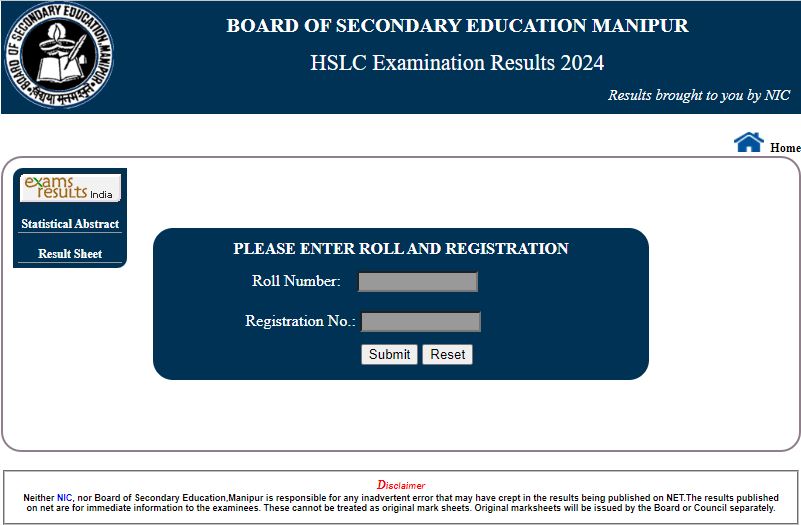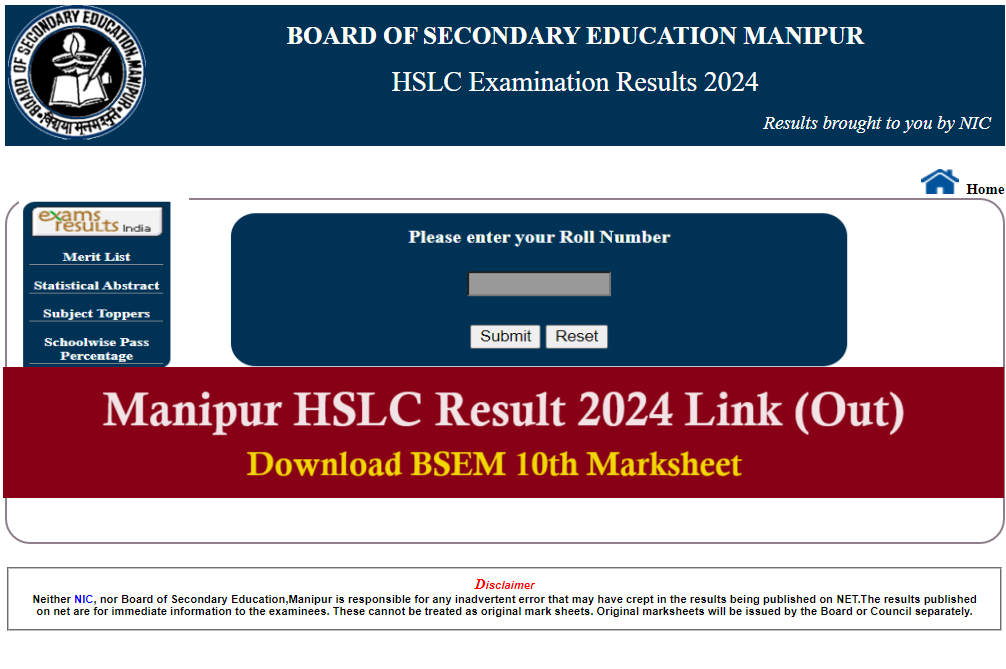
Introduction
In a landmark political victory, JNU professor Angomcha Bimol Akoijam, representing the Indian National Congress, won the Inner Manipur parliamentary seat with a substantial mandate. This triumph, marked by a significant majority, is a turning point for Manipur's political landscape. Bimol's win is not just a political success; it is a promise of committed representation and development for the people of Manipur.
Who is Angomcha Bimol Akoijam?
Background and Education
Angomcha Bimol Akoijam is a distinguished academic and social activist. Born in Manipur, he pursued higher education passionately, achieving both an MA and a PhD in psychology. His academic journey is impressive, culminating in his current position as a professor at Jawaharlal Nehru University (JNU).
Academic Career
Bimol's academic career spans over 16 years, during which he has significantly contributed to the fields of Social and Political Psychology, Cultural Studies, and Research Methodology. His work is well-regarded, with numerous publications in prestigious journals and contributions to various scholarly books.
Previous Roles and Contributions
Before joining JNU, Bimol served as a faculty member at Delhi University and the Centre for the Study of Developing Societies. His career is marked by a deep engagement in public issues, democratic movements, and advocacy for social justice and equality.
The Political Landscape of Inner Manipur
Historical Context
Inner Manipur has a rich history of political activism and diverse cultural heritage. The region has witnessed significant political shifts, with various parties influencing its trajectory over the years.
Recent Political Climate
The recent political climate in Inner Manipur has been dynamic, with issues such as ethnic tensions, economic instability, and social unrest taking center stage. The electorate has been eager for stable and effective leadership.
Key Issues Facing the Region
Manipur faces several critical issues, including high unemployment rates, inadequate healthcare, underdeveloped infrastructure, and ethnic conflicts. These challenges have shaped the political discourse and electoral campaigns in the region.
The Election Campaign
Strategy and Approach
Bimol's campaign was strategically focused on grassroots mobilization and community engagement. His approach blended traditional campaign methods with modern techniques, ensuring widespread reach and impact.
Key Promises and Policies
Central to his campaign were promises of comprehensive development, improved healthcare, enhanced educational facilities, and economic growth. He also emphasized the importance of preserving Manipur's cultural heritage and promoting social harmony.
Public Response and Support
The public response to Bimol's campaign was overwhelmingly positive. His academic background and history of social activism resonated deeply with the voters, who saw him as a capable leader poised to bring meaningful change.
Victory and Mandate
Election Results
Bimol won with 46.9% of the votes, securing 3,74,017 votes in total. His closest competitor, Thounaojam Basanta Kumar Singh from the Bharatiya Janata Party, garnered 33.2% of the votes. The significant margin of victory underscores the strong support for Bimol's vision.
Voter Turnout
The high voter turnout in this election indicates a robust democratic engagement and a strong desire for change among the electorate. This massive mandate highlights the broad-based support Bimol enjoys across Inner Manipur.
Significance of the Mandate
The mandate is a clear signal of the people's trust in Bimol's leadership. It reflects their hope for effective representation and significant improvements in their quality of life.
Angomcha Bimol Akoijam's Vision for Manipur
Immediate Priorities
Bimol's immediate priorities include addressing unemployment, improving healthcare, and enhancing infrastructure. He aims to implement policies that will deliver quick and impactful results for his constituents.
Long-term Goals
His long-term goals focus on sustainable development and inclusive growth. Bimol envisions a Manipur where economic prosperity is balanced with social justice and environmental sustainability.
Plans for Development
Bimol plans to attract investments, promote local industries, and improve educational and healthcare facilities. He believes in a holistic approach to development that benefits all sections of society.
Challenges Ahead
Political Opposition
Despite his strong mandate, Bimol will face challenges from political opponents. Navigating the complex political landscape will require strategic alliances and effective negotiation skills.
Social and Economic Issues
The social and economic issues in Manipur are deeply entrenched. Addressing these problems will require innovative solutions, persistent effort, and collaboration with various stakeholders.
Environmental Concerns
Environmental degradation is a significant concern in Manipur. Bimol will need to balance development with environmental conservation to ensure sustainable progress.
Reaction from Political Parties
Congress Party's Reaction
The Congress Party has celebrated Bimol's victory as a major achievement. Party leaders have expressed their support and confidence in his ability to drive positive change in Manipur.
Opposition's Stance
While the opposition has acknowledged the mandate, they remain critical of the Congress Party's policies. They are likely to closely scrutinize Bimol's actions and hold him accountable.
National Perspective
Nationally, Bimol's victory is seen as a boost for the Congress Party, which is striving to regain its influence across India. His success is being viewed as a model for other regions.
Impact on Manipur's Future
Expected Changes
Bimol's leadership is expected to bring significant changes to Manipur. His focus on development, education, and healthcare is anticipated to improve the quality of life for many residents.
Economic Implications
Economically, Bimol's policies aim to stimulate growth and create job opportunities. His plans to develop local industries and attract investments could transform Manipur's economic landscape.
Social Impact
Socially, Bimol's emphasis on inclusion and justice is expected to foster a more harmonious and equitable society. His background in social activism provides a strong foundation for addressing these issues.
Role in Parliament
Representation of Manipur
As a Member of Parliament, Bimol will represent Manipur's interests at the national level. His role will be crucial in advocating for policies and resources that benefit the region.
Potential Contributions
Bimol's academic background and social activism experience position him to make significant contributions to parliamentary debates and legislative processes.
Legislative Agenda
His legislative agenda will likely focus on education reform, healthcare improvements, economic development, and social justice. He aims to introduce and support bills that align with these priorities.
Community Engagement
Plans to Engage with Local Communities
Bimol understands the importance of staying connected with his constituents. He plans to engage with local communities regularly to understand their needs and concerns.
Strategies for Addressing Local Issues
He aims to implement community-driven solutions that are tailored to the specific needs of different areas within Inner Manipur. This approach ensures that development is inclusive and effective.
Building Trust and Collaboration
Building trust with the community is a key priority for Bimol. He believes in transparent governance and seeks to foster collaboration between the government and the people.
Educational Initiatives
Focus on Education Reform
Bimol is passionate about education and plans to introduce reforms that improve the quality and accessibility of education in Manipur. He believes that education is the cornerstone of development.
Promoting Higher Education
He aims to promote higher education by enhancing the infrastructure of existing institutions and establishing new ones. Scholarships and financial aid will be part of his strategy to support students.
Supporting Educational Infrastructure
Investing in educational infrastructure is a critical component of Bimol's vision. He plans to build new schools, upgrade existing ones, and provide modern facilities and resources.
Economic Development
Strategies for Economic Growth
Bimol's economic strategy focuses on sustainable growth. He plans to promote local industries, enhance agricultural productivity, and attract investments in sectors like tourism and technology.
Promoting Local Industries
Supporting local industries is key to Bimol's economic plan. He believes that empowering small and medium enterprises (SMEs) can create jobs and drive economic growth.
Addressing Unemployment
Unemployment is a significant issue in Manipur. Bimol aims to create job opportunities through various initiatives, including skill development programs and promoting entrepreneurship.
Healthcare Improvements
Enhancing Healthcare Facilities
Bimol is committed to improving healthcare facilities in Manipur. He plans to upgrade hospitals, build new clinics, and ensure that healthcare services are accessible to all.
Policies for Better Healthcare Access
He intends to introduce policies that make healthcare more affordable and accessible, particularly for marginalized communities. Preventive healthcare and awareness campaigns will also be a focus.
Addressing Health Disparities
Addressing health disparities is crucial for Bimol. He aims to reduce the gap in healthcare access and outcomes between different social and economic groups.
Conclusion
Angomcha Bimol Akoijam's victory in Inner Manipur marks a new chapter in the region's political landscape. His academic background, combined with his commitment to social justice and development, positions him as a transformative leader. As he steps into his role as a Member of Parliament, the people of Manipur have high hopes for a brighter and more prosperous future.
FAQs
1. What is the significance of Angomcha Bimol Akoijam's victory?
His victory signifies a desire for change and effective representation in Manipur. It also highlights the people's confidence in his vision and leadership.
2. What are the main challenges he will face?
Bimol will face challenges such as political opposition, addressing deep-rooted social and economic issues, and balancing development with environmental conservation.
3. How does he plan to improve education in Manipur?
He plans to introduce education reforms, promote higher education, and invest in educational infrastructure to improve the quality and accessibility of education.
4. What are his strategies for economic development?
His strategies include promoting local industries, enhancing agricultural productivity, attracting investments, and creating job opportunities through skill development and entrepreneurship.
5. How will he address healthcare issues in the region?
Bimol plans to upgrade healthcare facilities, introduce policies for better healthcare access, and address health disparities to ensure comprehensive healthcare for all.



